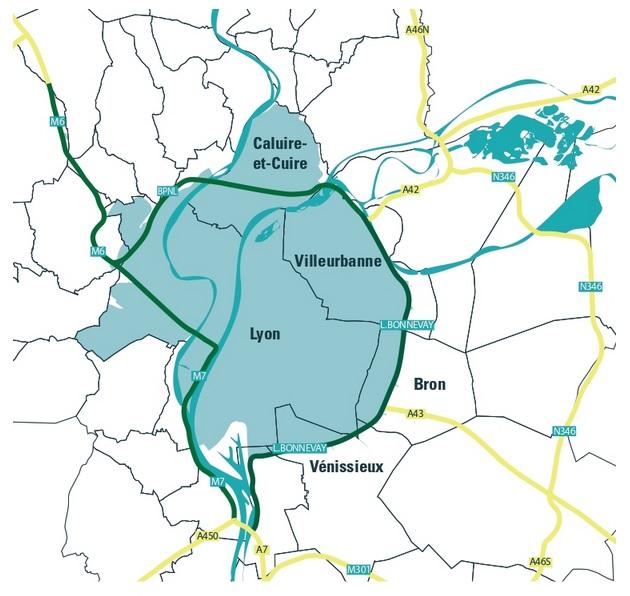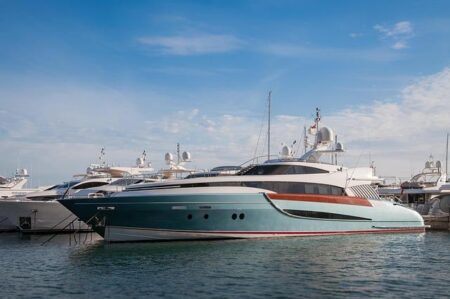In a bold move against rising air pollution levels, the city of Lyon has taken a significant step towards enhancing urban living by declaring cars unwelcome in its bustling center. As major cities around the globe grapple with the environmental and health impacts of vehicle emissions, Lyon stands at the forefront of the fight for cleaner air and improved public health. This innovative policy aims not only to mitigate pollution but also to promote sustainable transportation options, redefine urban spaces, and set a precedent for other cities to follow. In this article, we explore the implications of Lyon’s decision, the reactions it has sparked among residents and businesses, and the broader conversation about urban sustainability in France and beyond.
Strategies for Reducing Emissions in Urban Areas
Urban centers like Lyon are adopting innovative strategies to combat air pollution, prioritizing sustainable transportation alternatives. Among these measures is the expansion of pedestrian zones which significantly reduces vehicle traffic in city centers. Local authorities are encouraging the use of public transport, biking, and walking by improving infrastructure. Additionally, the city promotes electric vehicles through the establishment of charging stations and incentives for residents.
Another critical strategy involves implementing low-emission zones where only vehicles meeting strict emissions standards are allowed. This approach prompts drivers to consider eco-friendlier transport methods. Other initiatives include utilizing green spaces in urban planning to improve air quality and implementing stricter regulations on industrial emissions. These collective efforts aim to transform Lyon into a cleaner, healthier environment, setting a precedent for other cities to follow.
Impact of Car Bans on Local Businesses and Communities
The recent implementation of car bans in Lyon has generated a multifaceted response from local businesses and communities, sparking both concern and optimism. Proponents argue that reducing vehicular traffic contributes significantly to lower air pollution levels, offering long-term health benefits for residents. Businesses that rely on foot traffic, such as cafés and small boutiques, have reported an uptick in customers, as pedestrians and cyclists feel more comfortable engaging with their surroundings. However, some larger retailers and services that depend on vehicle access have expressed worries about declining sales, fearing that the inconvenience could drive customers to other areas.
To better understand the overall impact, consider the following points:
- Increased foot traffic: Retailers catering to pedestrians often see enhanced business opportunities.
- Concerns for accessibility: Businesses that are less accessible for those with mobility challenges may face challenges as well.
- Community engagement: Local events, markets, and public spaces can flourish in less congested environments.
- Shifts in consumer behavior: More individuals may choose to shop locally, reshaping the local economy.
The following table illustrates the contrasting perspectives of different sectors on the initiative:
| Business Type | Impact of Car Ban |
|---|---|
| Cafés & Small Shops | Increased customer flow |
| Large Retail Chains | Declining access and sales |
| Service Providers (e.g., salons) | Mixed reactions; some report growth, others struggle |
Innovative Public Transport Solutions in Lyon
In an ambitious move to combat air pollution and enhance urban mobility, Lyon has introduced a range of innovative public transport solutions. The city’s emphasis on sustainability is leading to a transformative approach, integrating various modes of transport to create a seamless experience for commuters. Some key features of this initiative include:
- Expanded Tram Networks: Lyon has significantly increased its tram lines, connecting more neighborhoods and reducing reliance on cars.
- Electric Buses: Transitioning to fully electric buses not only improves air quality but also promises a quieter and more pleasant urban environment.
- Bicycle Sharing Programs: The city’s bike-sharing schemes are being enhanced with more stations and better accessibility, encouraging residents to choose two wheels over four.
- Smart Ticketing Systems: Implementing user-friendly, integrated ticketing options makes public transport a more attractive choice.
To further these objectives, Lyon’s authorities have implemented dedicated bike lanes and pedestrian-friendly zones, drastically reducing the number of vehicles in certain areas. This holistic approach is reflected in the city’s remarkable performance metrics, such as:
| Transport Mode | Current Ridership | Projected Growth (2025) |
|---|---|---|
| Trams | 300,000 daily | 400,000 |
| Buses | 400,000 daily | 500,000 |
| Bicycles | 50,000 daily | 100,000 |
International Perspectives on Urban Air Quality Management
In a bold move against urban air pollution, Lyon has taken significant steps to restrict vehicle access within its city limits. The initiative aims to tackle the growing environmental issues exacerbated by traffic emissions, promoting cleaner air for residents. Authorities are implementing low-emission zones (LEZ) and promoting public transport as a viable alternative. This strategy forms part of a wider trend in European cities where air quality management is becoming a priority:
- Enhanced Public Transport: Investments are being funneled into improving the efficiency and reach of public transit systems.
- Promotion of Cycling: Infrastructure is being developed to encourage cycling as a sustainable commuting option.
- Green Zones Creation: More parks and green spaces are being integrated into urban planning to absorb CO2 and improve quality of life.
This shift aligns with broader international efforts to combat urban pollution, with cities like Madrid and Paris already adopting similar policies. These strategies can be measured through data collected in various cities, as seen in the table below, reflecting the success rates of different air quality initiatives:
| City | Policy | Result |
|---|---|---|
| Lyon | Car Restrictions | 10% EMISSION REDUCTION |
| Madrid | Low-Emission Zones | 15% EMISSION REDUCTION |
| Paris | Vehicle Bans | 20% EMISSION REDUCTION |
Closing Remarks
In conclusion, Lyon’s bold move to ban cars from its city center marks a significant step in the fight against air pollution and reflects a growing trend among urban centers worldwide to prioritize sustainability and public health. By limiting vehicular traffic, the city aims to create a cleaner, more livable environment for its residents and visitors alike. As Lyon joins the ranks of other European cities adopting similar measures, the effectiveness of such policies will be closely watched. The struggle against pollution is far from over, but Lyon’s initiative demonstrates a commitment to healthier urban living and a vision for a more sustainable future. As other cities evaluate their own approaches to combat air quality issues, the implications of Lyon’s decision will resonate far beyond its borders.




